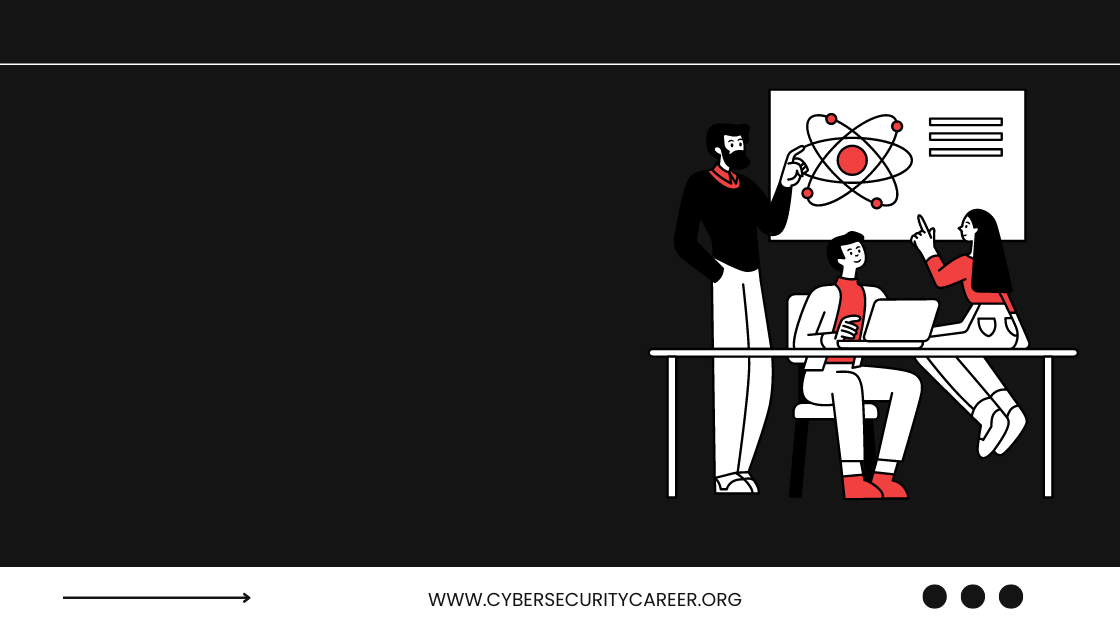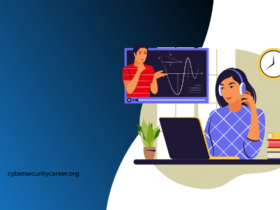As the world becomes increasingly connected, it’s more important than ever to have someone protecting your data and information. And that person? You. Cyber security is a rapidly growing field, and there’s never been a better time to get into it than right now. In this blog post, we’ll outline some tips on how to get started with cyber security without any experience. From learning about cybersecurity terms and concepts to finding resources online, read on to learn everything you need to get started in this exciting field.
What is Cyber Security?
Cyber security is the practice of protecting computer networks and information from unauthorized access. Cyber attacks are efforts by criminals or foreign governments to gain unauthorized access to computer systems or data. Attacks can come in many forms, including through viruses, worms, Trojan horses, and denial-of-service (DoS) attacks.
There are many ways to get into cyber security with no experience. One way is to start by taking online courses offered by universities or companies. Another way is to join a hacker group and learn from experienced members. Finally, you can try self-teaching techniques or use software that provides tutorials on how to protect your computer system.
The History of Cyber Security
Cyber security has been around for a while now, but it wasn’t always as sophisticated as it is today. The history of cyber security can be traced back to the early days of computers and the internet. In the early 1990s, people were trying to figure out how to protect their computers from hackers. At that time, there was no such thing as cyber security or virus protection. People just tried to keep their computer systems safe by keeping them locked up and not letting anyone access them.
However, things began to change in the late 1990s when people started to realize that hackers could actually make money by stealing information from other people’s computers. They started developing programs that could hack into other people’s computers and steal their data. This is where cyber security really began to take off.
Today, cyber security is a very important part of our lives. We use it every day when we go online and open up our email accounts. Cybersecurity is also important when we are using our mobile devices and accessing the internet through our phones. We need to be careful about what information we share online and make sure that our computer systems are protected from hackers.
Types of Cyber Security
Cyber Security is a rapidly growing field with many different types of jobs. You can get into cyber security with no experience by taking online courses or enrolling in boot camps. There are many different types of cyber security jobs, including:
- Cyber security Analyst: A cyber security analyst works on finding and fixing vulnerabilities in networks and systems.
- Cyber security Engineer: A cyber security engineer designs and implements solutions to protect computer networks.
- Computer Forensics Analyst: A computer forensic analyst helps law enforcement investigate crimes that have been committed using computers.
- Penetration Tester: A penetration tester tests the security of computer systems by trying to find vulnerabilities.
Defining Threats
What are the most common cyber threats?
Cybersecurity threats come in many shapes and sizes. They can be perpetrated by criminals, insiders, or state actors. But regardless of the perpetrator, all cyber threats share one common goal: to disrupt or damage systems or networks.
Here’s a look at some of the most common cyberthreats:
- Malware: Malware is a type of malicious software that exploits vulnerabilities in computer systems for malevolent purposes, such as stealing data, spreading viruses, or conducting espionage. It’s become increasingly difficult to keep malware out of computers and mobile devices because it often spreads through infected email attachments, downloaded software, and peer-to-peer file sharing.
- Insider Threats: Insider threats occur when employees access or misuse information they should not have access to – such as customer data – due to their position within an organization. They can jeopardize system security and compromise company data sovereignty by stealing intellectual property or selling sensitive information on the black market.
- Cyber Attacks: A cyberattack is when someone uses unauthorized means to interfere with or damage computer systems or networks. This could mean launching a Distributed Denial of Service (DDoS) attack against a target website in order to overload it with traffic; penetrating corporate servers in order to steal sensitive information; or hacking into individual user accounts in order to empty their bank accounts or download files without their consent.
Protecting Your Electronic Devices and Data
There are a few basic things you can do to protect yourself and your electronic devices and data.
- Back up your data regularly. This means keeping copies of important files, like photos and videos, on multiple storage devices. If something ever happens and your main computer or storage device is damaged, you’ll have a copy of your data to work with.
- Install security software on your devices. This will help protect them from unauthorized access and tracking by hackers. There are many different types of security software available, so it’s important to find the one that fits your needs and budget.
- Use strong passwords and be sure to keep them updated. A strong password is made up of at least 8 characters with a combination of letters, numbers, and symbols (like “123456”). Make sure you also use a different password for every site and account you use!
- Protect your wireless networks by using strong passwords and encryption when connecting to them. This will help keep your personal information private when browsing the internet or downloading files from other users on the network.
- Be aware of scam emails containing threats about viruses or stolen credit card information. Don’t open any attachments unless you know who sent them and trust that they aren’t trying to steal your information maliciously.
- If you ever notice your device is being unusually slow or showing signs of being hacked, don’t hesitate to take it to your local computer store for a diagnostic check. They can help you identify and fix any security issues before they become bigger problems.
How to Become a Cyber Security Professional?
There is no one-size-fits-all answer to becoming a cyber security professional, but there are a few paths that you can take if you want to get started in the field.
One option is to earn an undergraduate degree in information security, computer science, or another related area. After completing your undergraduate degree, you may be able to gain experience working as a cyber security analyst or consultant.
You can also pursue a graduate degree in cyber security. A graduate degree may give you more specialization and knowledge than an undergraduate degree in the area of cyber security. Graduate degrees typically require two years of full-time study.
Conclusion
If you’re new to the world of cyber security, fear not! There are plenty of resources available online that can help get you started. Here are four tips to get you started: 1) Join a cyber security forum or group and ask questions. This will give you access to seasoned professionals who can teach you the ropes. 2) Use online tutorials and videos. These can be found on websites like YouTube and Udemy, or even within specific programs like Cyber Security 101 from Microsoft. 3) Get involved with your local cybersecurity community. This is where you’ll find people who have been in the industry for years and can offer advice and guidance on how to get started. 4) Access free resources offered by companies like Google and Microsoft. By doing this, you’ll be able to learn about different types of threats and how to defend yourself against them without spending a fortune on software products. If cyber security interests you, don’t let fear stop you from trying out these tips; with a little bit of effort, learning how to protect your computer systems could be one of the best things that has ever happened to you!










Leave a Reply